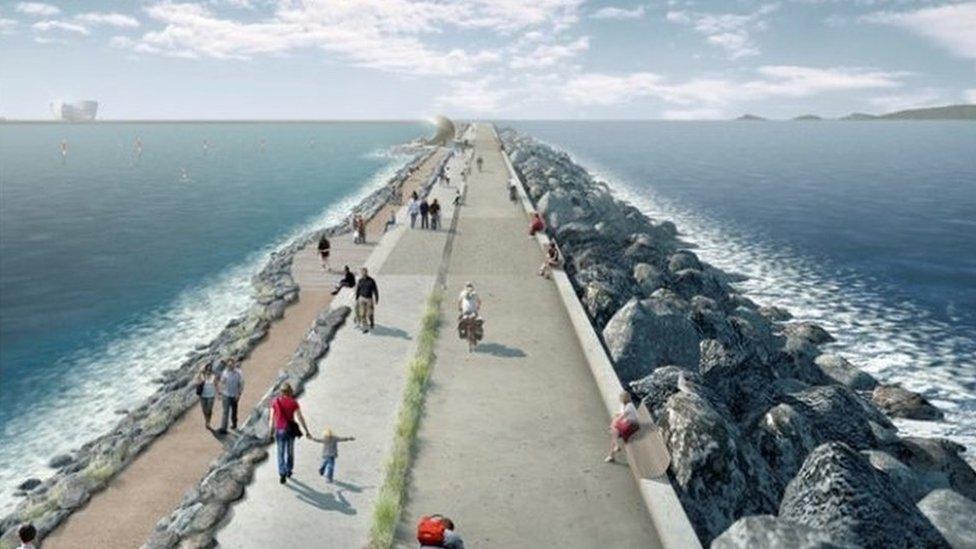Back Swansea tidal lagoon after DUP deal, Plaid Cymru says
- Published

The Hendry review said the lagoon would make a "strong contribution" to energy supplies
UK ministers should back Swansea Bay's proposed tidal lagoon as £1bn extra is going to Northern Ireland as part of a Tory-DUP deal, Plaid Cymru has said.
A key review backed the energy scheme, but ministers said they were taking the time needed to consider it properly.
Energy spokesman Simon Thomas said the project could "unleash a level of private capital investment rarely seen in Wales".
It is claimed the lagoon could generate power for 155,000 homes over 120 years.
The Conservative deal with the Democratic Unionist Party, announced on Monday, means the 10 DUP MPs will back Theresa May's minority administration in key Commons votes and Northern Ireland will receive an extra £1bn over two years.
On Tuesday, UK Energy Minister Richard Harrington said the Hendry review identified "significant questions as to whether tidal lagoons can be cost-effective, and very complex issues are involved".

Simon Thomas says the project will make Wales and the UK leaders in the renewable technology
But Plaid Cymru has written to Chief Secretary to the Treasury Liz Truss urging her to get behind the scheme.
"It will see new industrial facilities built and new life breathed into Welsh industry - large and small," Mr Thomas said.
"The Conservative government has decided to end austerity in Northern Ireland because of its deal with the DUP. It is only fair that Wales gets investment as well."
In March, more than two thirds of AMs signed a letter asking the prime minister to back the power scheme.
Mr Thomas said the lagoon would bring opportunities for new ventures in leisure, tourism and associated maritime activities by potentially attracting large numbers of visitors and "contribute hugely to the image of Wales as a place where exciting and transformational projects can be imagined and delivered".
The developer needs to agree with UK ministers how much subsidy it should receive for the energy generated and to obtain a marine licence.
- Published27 June 2017
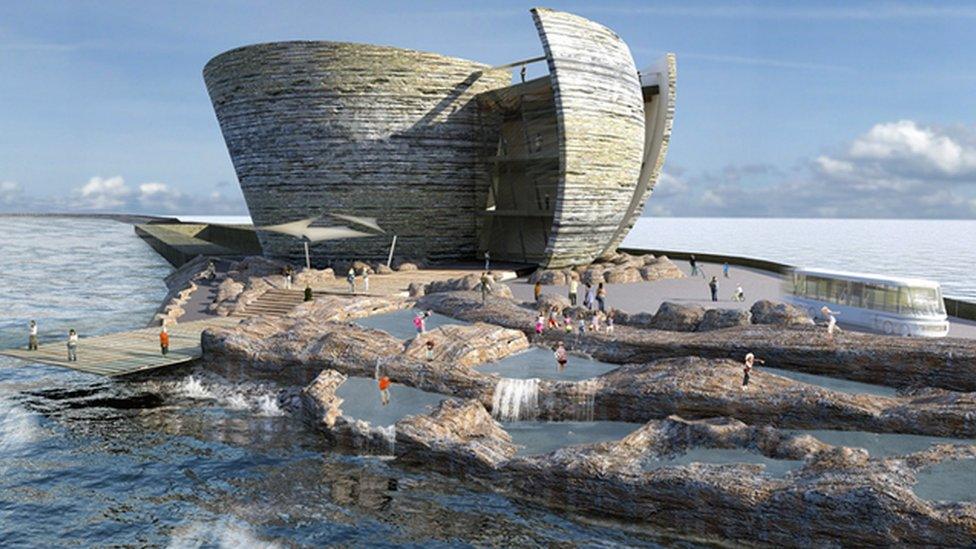
- Published1 March 2017
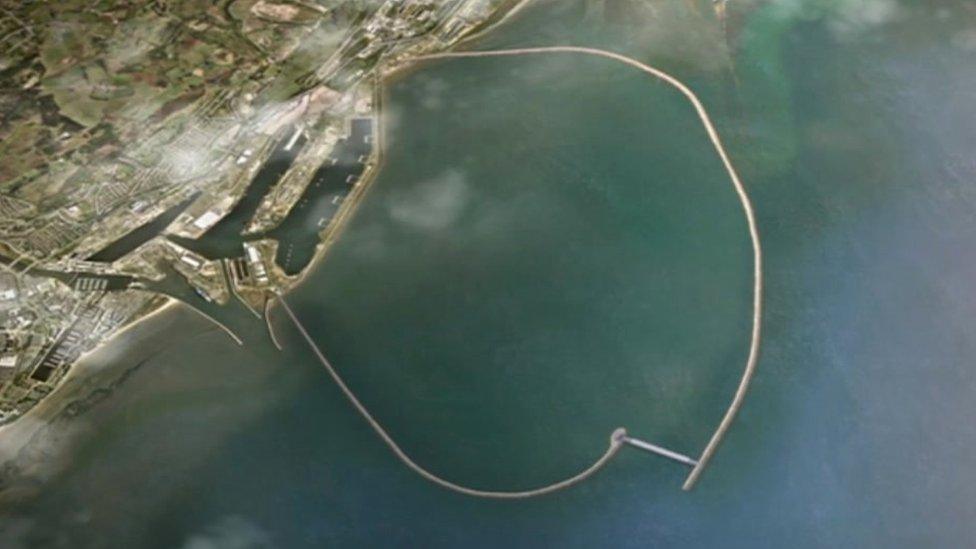
- Published12 January 2017
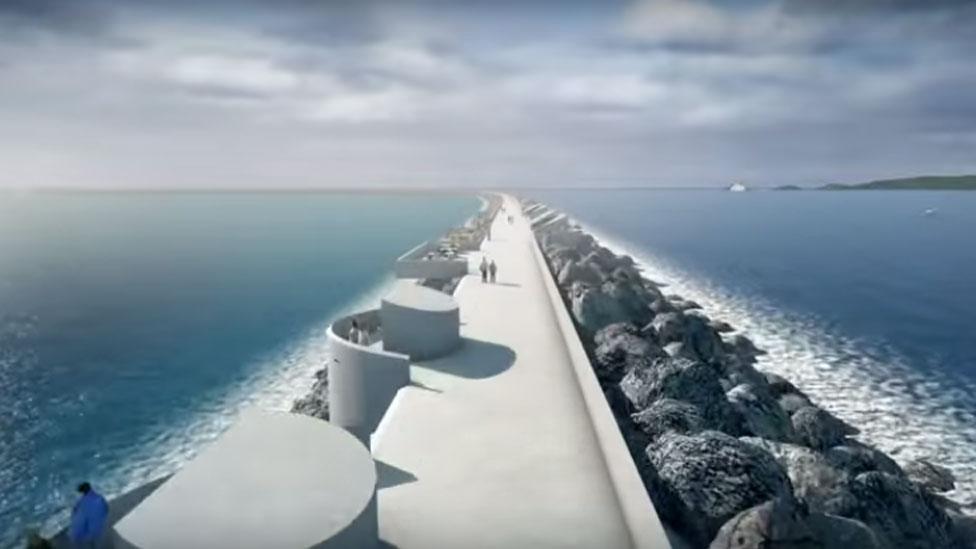
- Published12 January 2017
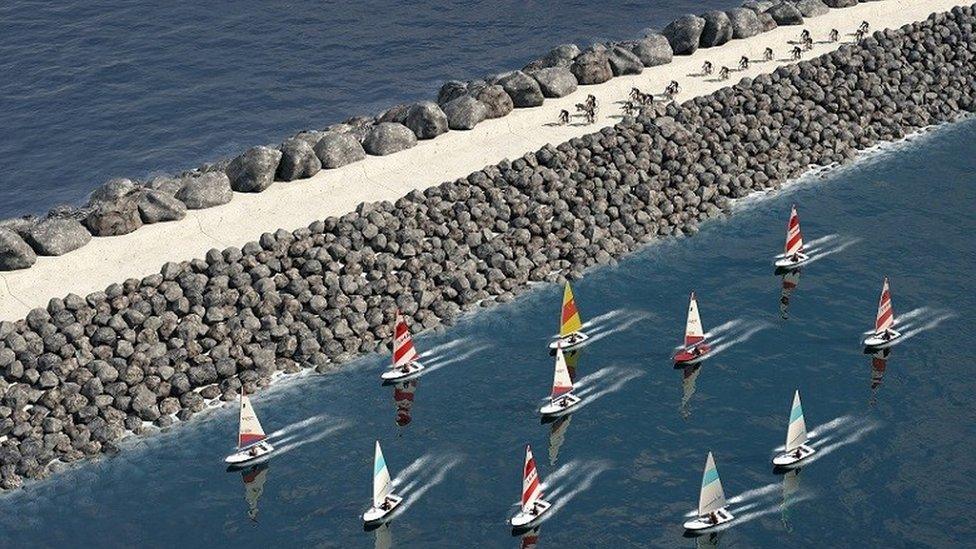
- Published12 January 2017

- Published10 January 2017

- Published7 November 2016

- Published7 November 2016

- Published11 October 2016
